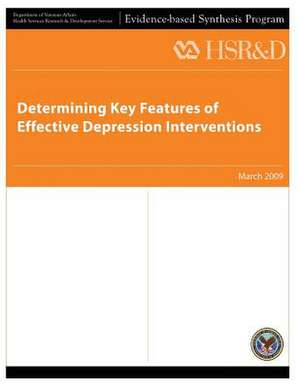Determining Key Features of Effective Depression Interventions
Autor U. S. Department of Veterans Affairs, Health Services Research &. Dev Servicesen Limba Engleză Paperback
Preț: 103.94 lei
Preț vechi: 109.41 lei
-5% Nou
Puncte Express: 156
Preț estimativ în valută:
19.89€ • 20.69$ • 16.42£
19.89€ • 20.69$ • 16.42£
Carte disponibilă
Livrare economică 24 martie-07 aprilie
Preluare comenzi: 021 569.72.76
Specificații
ISBN-13: 9781490303987
ISBN-10: 1490303987
Pagini: 72
Dimensiuni: 216 x 280 x 4 mm
Greutate: 0.19 kg
Editura: CREATESPACE
ISBN-10: 1490303987
Pagini: 72
Dimensiuni: 216 x 280 x 4 mm
Greutate: 0.19 kg
Editura: CREATESPACE
